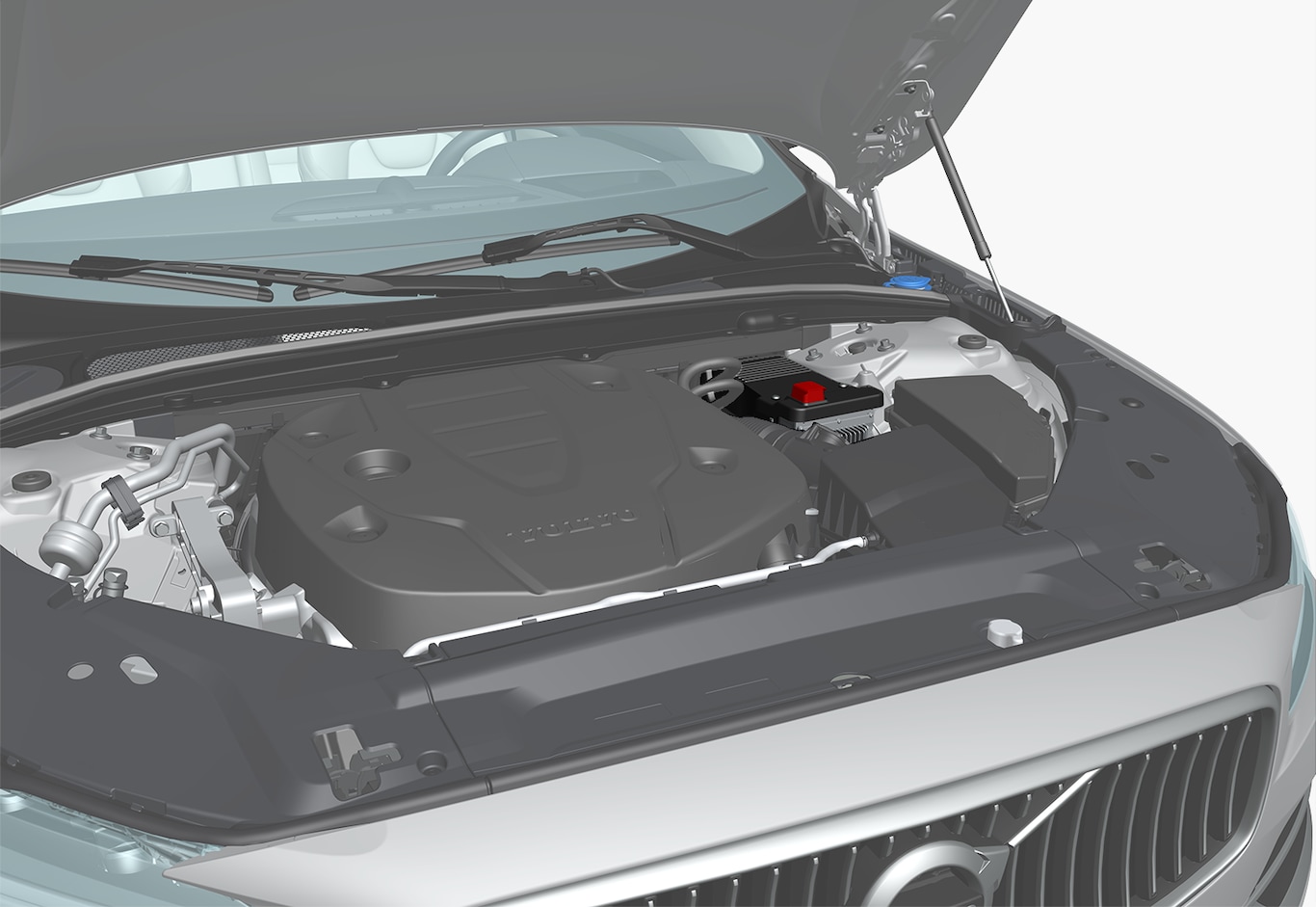Vehicles with the Start/Stop function are equipped with two 12-volt batteries ‒ a heavy-duty start battery and a support battery that provides extra current during the Start/Stop function's start sequence.

Note
- The higher the current consumption in the vehicle, the more the alternator has to work and the batteries have to be charged = increased fuel consumption.
- When the starter battery capacity has dropped below the lowest permissible level, the Start/Stop function is disengaged.
When the Start/Stop function is temporarily reduced due to high current consumption:
- The engine will auto-start, even if the driver does not lift their foot from the brake pedal.
The support battery does not normally require more service than the start battery. If you have any questions or concerns, consult a workshop ‒ an authorized Volvo workshop is recommended.
Important
If the following is not observed, the Start/Stop function may temporarily stop working after connection of an external starter battery or battery charger:
- The negative battery terminal of the vehicle's starter battery must never be used to connect an external starter battery or battery charger – only the vehicle's negative charging point should be used as a grounding point.
Note
If the starter battery is discharged to the extent that the vehicle does not have normal electrical functions and the engine must then be jump-started with an external battery or a battery charger, the Start/Stop function may remain activated. If the Start/Stop function shortly thereafter auto-stops the engine, there is a huge risk that auto-start of the engine will fail due to insufficient battery capacity since the battery had not had time to recharge.
If the vehicle has been jump-started or if there has not been enough time for the battery to be charged with a battery charger, it is advisable to temporarily deactivate the Start/Stop function until the battery has been recharged by the vehicle. At an ambient temperature of about +15°C (about 60°F), the battery must be charged by the vehicle for at least one hour. At lower ambient temperatures, the charging time can increase to 3-4 hours. It is advisable to charge the battery with an external battery charger.